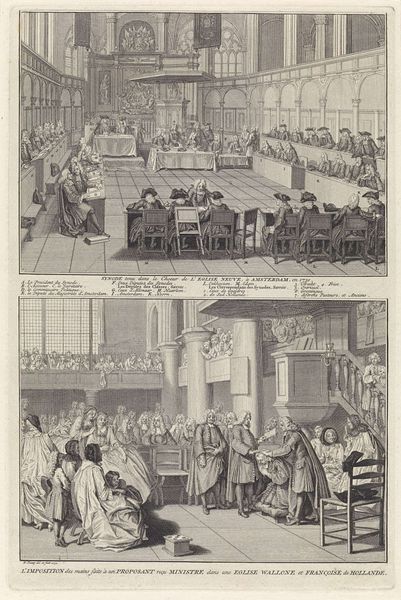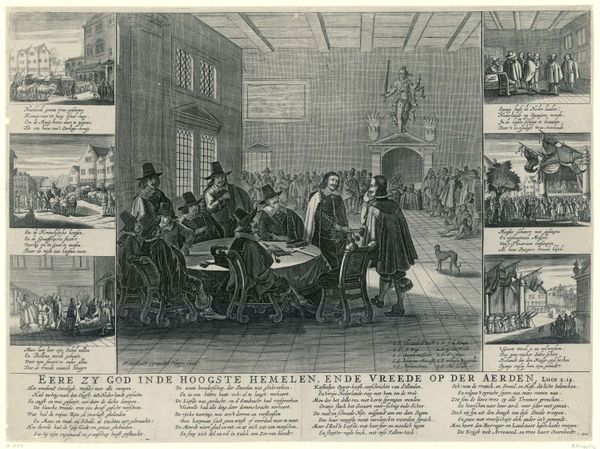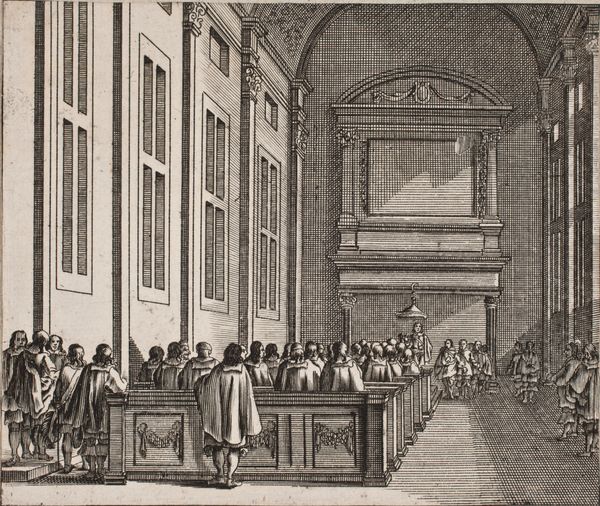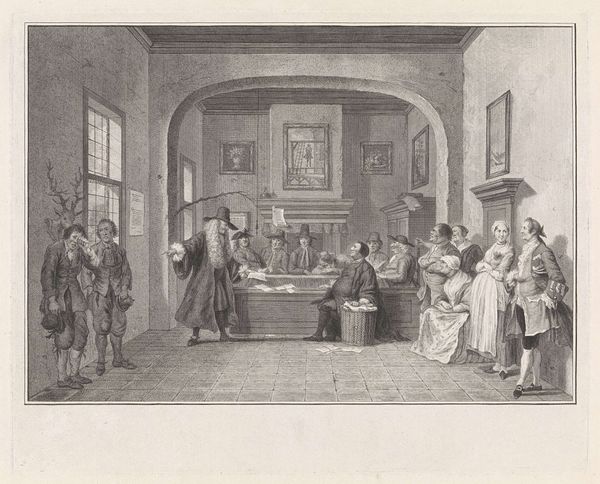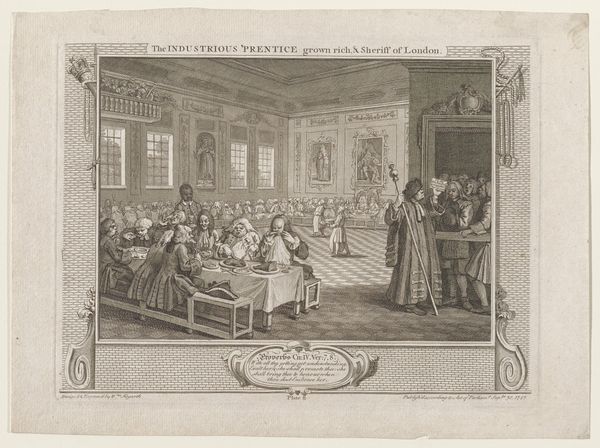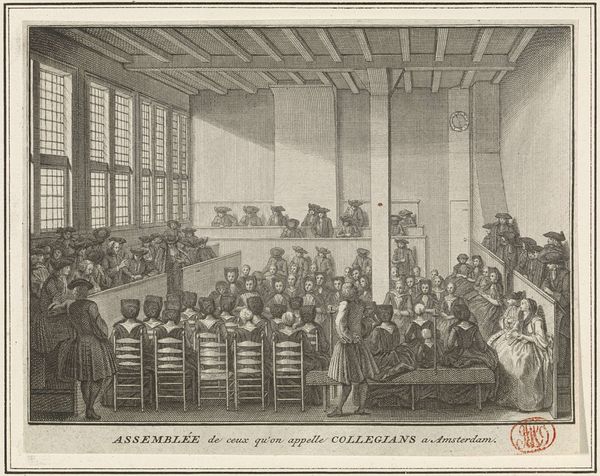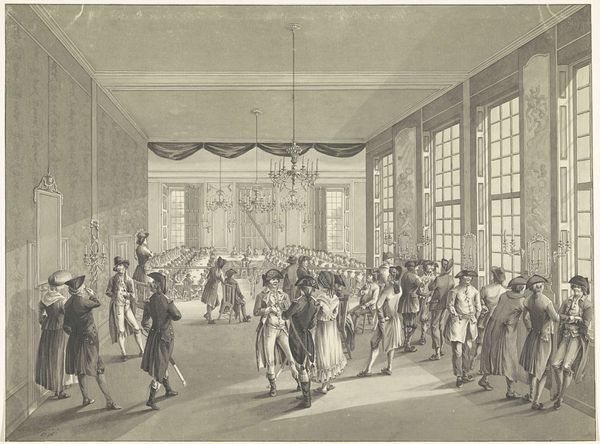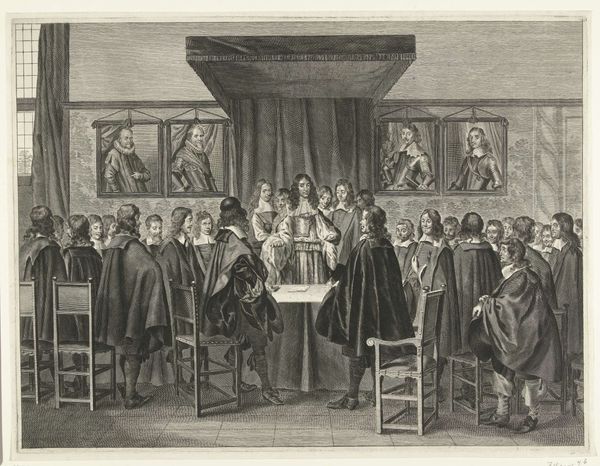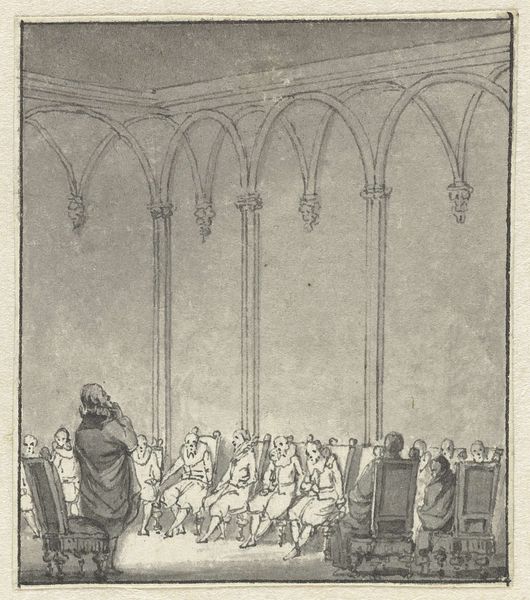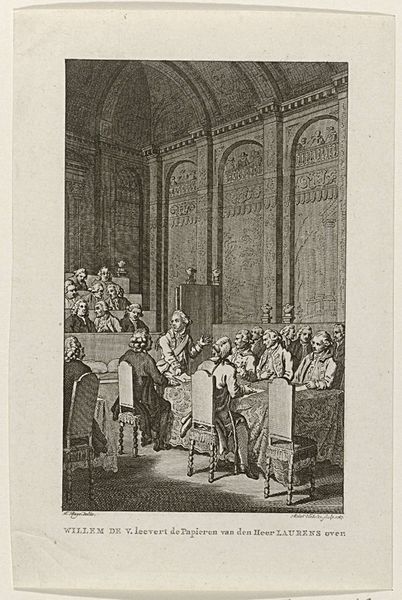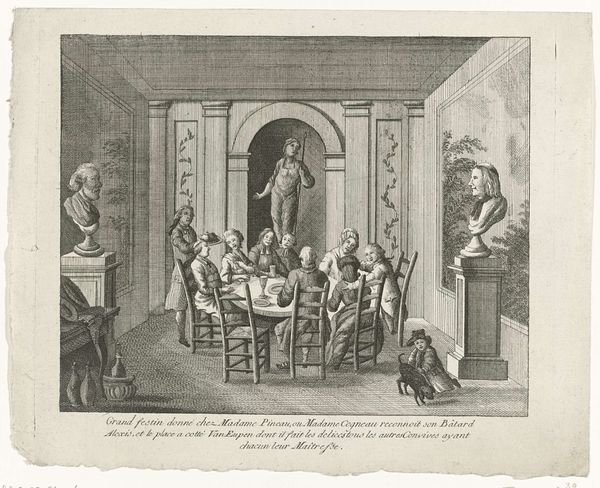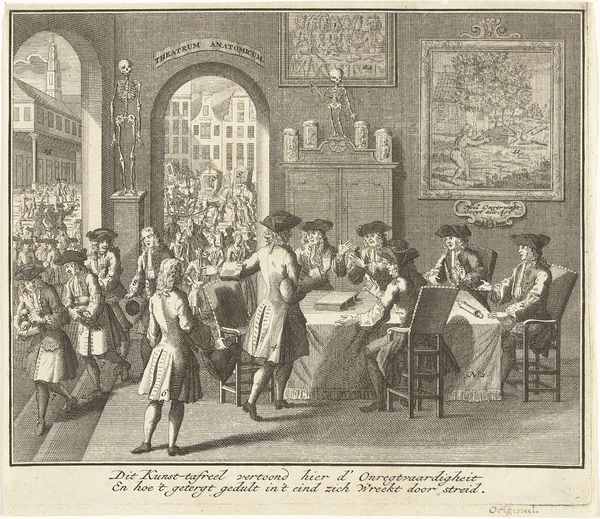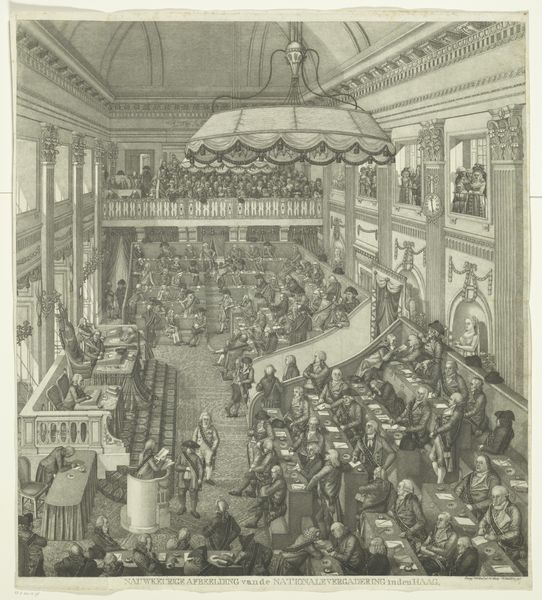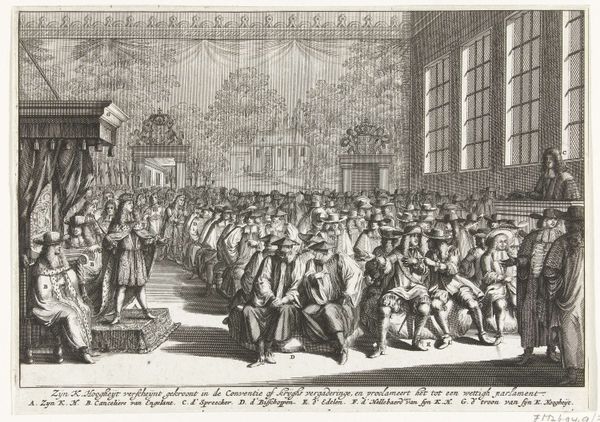
print, intaglio, engraving
#
historical design
#
baroque
# print
#
intaglio
#
old engraving style
#
historical photography
#
genre-painting
#
history-painting
#
engraving
#
realism
Dimensions: height 364 mm, width 410 mm
Copyright: Rijks Museum: Open Domain
This print, depicting the ratification of the Peace of Munster in 1648, was made by an anonymous artist using an engraving technique. Lines are incised into a metal plate, traditionally copper, using a tool called a burin. Ink is then applied to the plate, filling the lines, and the surface is wiped clean. When paper is pressed against the plate, the ink transfers, creating a detailed image. The engraver’s skill is evident in the precise lines and textures, capturing the scene’s formality and the characters' clothing. Engraving has a rich history, employed for centuries to reproduce images and disseminate information. It was a labor-intensive process, requiring skilled artisans and specialized tools, reflective of the economic and social structures of the time. The medium's capacity to disseminate information made prints like this a means of shaping public perception of events and solidifying political narratives. Paying attention to materials, processes, and their social context allows us to appreciate the full meaning of this print.
Comments
No comments
Be the first to comment and join the conversation on the ultimate creative platform.
